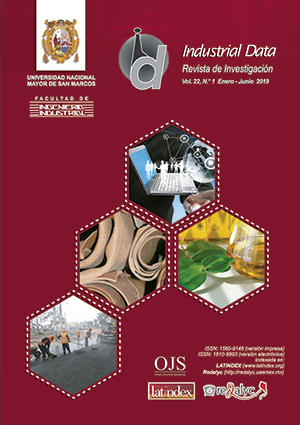Information Systems Success Evaluation Model with emphasis on political, social and ethical factors in public institutions in Peru
DOI:
https://doi.org/10.15381/idata.v22i1.16537Keywords:
Critical success factor; exploratory factor analysis; confirmatory factor analysis; structural equationsAbstract
This study proposes an information systems success model, with the addition of political, social, and ethical factors, applied to the Módulo de Gestión de Recursos Humanos [Human Resources Management Module] (MGRRHH) of the Ministry of Economy and Finance of Peru. The theoretical frameworks used included models proposed by various authors, finally assuming a theoretical evaluation model based on DeLone and McLean (2003), and Villegas (2010). Once the model was identified, with an appropriate adjustment and average validity (Cronbach's alpha, exploratory factor analysis, confirmatory factor analysis and structural equations), significant relationships were estimated based on the elements and components of success, which enabled the elimination of non-significant relationships and the proposal of a final model with all significant relationships.
Downloads
Downloads
Published
Issue
Section
License
Copyright (c) 2019 John Jairo Pérez Tijero, Rosa Sumactika Delgadillo Ávila De Mauricio

This work is licensed under a Creative Commons Attribution-NonCommercial-ShareAlike 4.0 International License.
AUTHORS RETAIN THEIR RIGHTS:
a. Authors retain their trade mark rights and patent, and also on any process or procedure described in the article.
b. Authors retain their right to share, copy, distribute, perform and publicly communicate their article (eg, to place their article in an institutional repository or publish it in a book), with an acknowledgment of its initial publication in the INDUSTRIAL DATA.
c. Authors retain theirs right to make a subsequent publication of their work, to use the article or any part thereof (eg a compilation of his papers, lecture notes, thesis, or a book), always indicating the source of publication (the originator of the work, journal, volume, number and date).



















